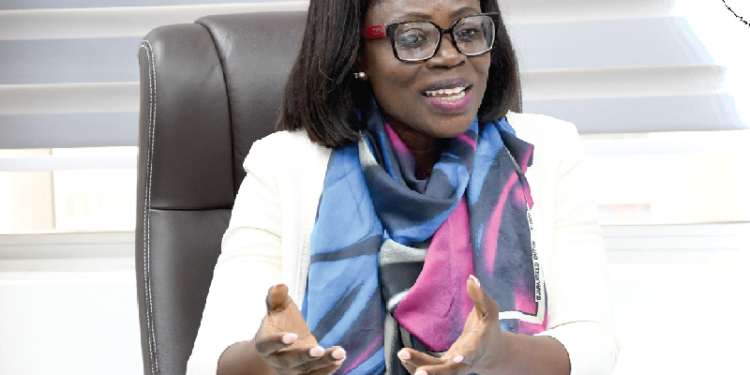GSE to develop climate finance, carbon trading vehicles to help finance Ghana’s $562bn energy transition plan
Meanwhile, Ghana has already taken a significant stride by approving the transfer of mitigation outcomes in a climate change agreement with Switzerland.
- Advertisement -
The Ghana Stock Exchange is seeking to partner with the Ghana Carbon Market Office of the Environmental Protection Agency (EPA), all capital market stakeholders, and the business community to thoughtfully develop climate finance and carbon trading vehicles that will mobilise domestic capital and also regional and international capital to finance the country’s just transition targets by 2070.
This is according to the Managing Director of the Ghana Stock Exchange (GSE), Abena Amoah.
- Advertisement -
She made the disclosure while speaking during the inaugural GSE Ring the Bell for Climate Change initiative dedicated to showcasing and celebrating issuers on the GSE market that have implemented bold, innovative, and appropriate technologies that have helped address climate change in the country.
- Advertisement -
Ghana is estimated to need approximately $562bn to be able to finance its energy transition and achieve a net zero emission target by 2070.
Underpinning this goal is the National Energy Transition Framework which seeks to decarbonize the energy sector.
According to the United Nations Economic Commission for Africa (UNECA), Ghana and other African nations stand to unlock an impressive $82 billion per year from carbon credits.
- Advertisement -
The Commission has noted that it is fervently advocating for the establishment of a comprehensive carbon market, positioning it as a sustainable financing mechanism to supplant traditional official development assistance to African countries.
Meanwhile, Ghana has already taken a significant stride by approving the transfer of mitigation outcomes in a climate change agreement with Switzerland.
This initiative involves Ghana exchanging carbon credits for payment while strategically retaining developmental benefits domestically.
The project focuses on transforming Ghana’s waste sector, creating premium organic fertilizer, and generating over 1000 direct jobs, with a particular emphasis on women’s employment.
- Advertisement -


